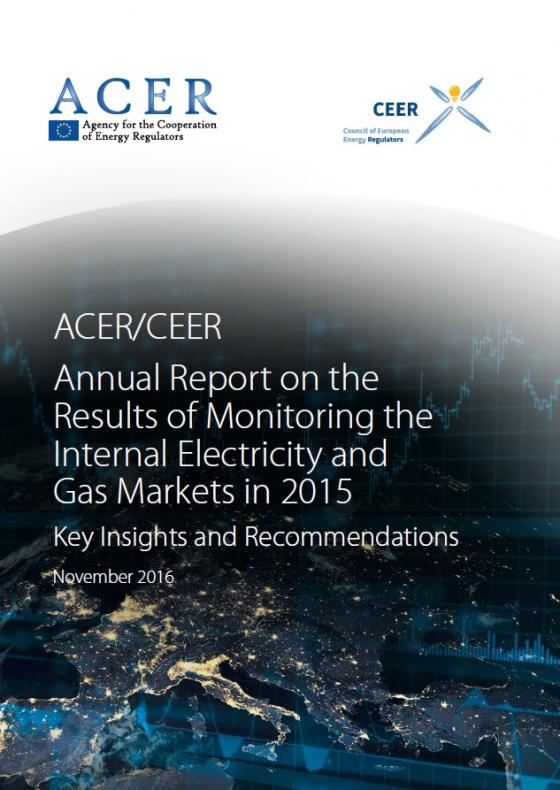ACER’s Director Alberto Pototschnig highlighted:
“In 2015, wholesale gas prices decreased across Europe, as a result of declining oil prices, increased gas-to-gas competition and a greater availability of LNG. Electricity wholesale prices also continued their declining trend in many countries and remained below 2008 levels. This trend is due, at least in part, to more renewables and an overcapacity in generation. Both for gas and electricity, a better utilisation of the networks, as well as greater competition, have played an important role”.
Why have electricity retail prices not fallen?
In half the EU Member States, the price residential consumers pay for electricity has not fallen. This is because of an increase in the level of non-contestable charges in the consumers’ energy bills (e.g. related to the funding of renewables support schemes and, in some cases, capacity remuneration mechanisms and other system services). Regulators consider that the continued increase of these non-energy related charges in consumers’ energy bills hinders consumers’ ability to take advantage of the greater choice and better prices that the energy sector liberalisation is expected to deliver.
Progress in customer protection and empowerment
The Report shows that the legal provisions for consumer protection and empowerments are generally well established in national legislation and in practice. On average, it takes around 14 working days to switch (electricity or gas) supplier which is within the 3-week maximum period mandated by EU energy laws, and around 5 weeks to receive the final bill after switching supplier. Regulators have set a more ambitious goal of switching within 24 hours by the year 2025 (see our Bridge to 2025 recommendations). In 2015, 17 countries have minimal functionalities for smart meters specified in law to ensure benefits to household consumers. 20 countries have reliable price comparison tools in electricity and 15 in gas.
Commenting on consumers’ experiences with the market, Lord Mogg, Chair of ACER’s Board of Regulators and CEER President, said:
“Consumers’ empowerment is essential if consumers are to benefit from the greater choice available in the market. Smart meters, if they are equipped with proper functionalities, are a key enabler of demand response which in turn provides much needed flexibility in energy systems. As regulators we will continue our work to remove barriers to retail markets, to unlock demand response and to ensure consumers have access to reliable comparison tools.”
Access the report here.



